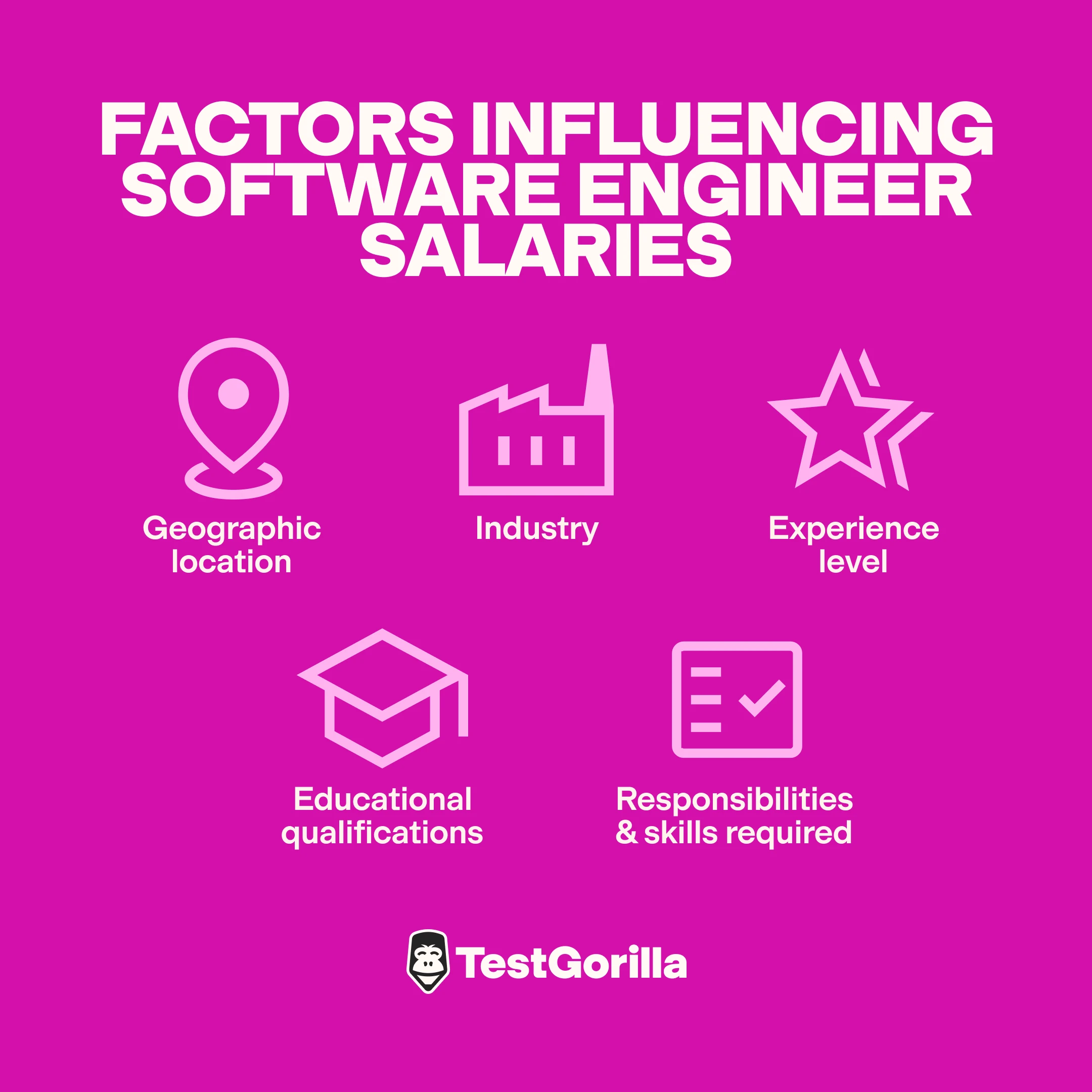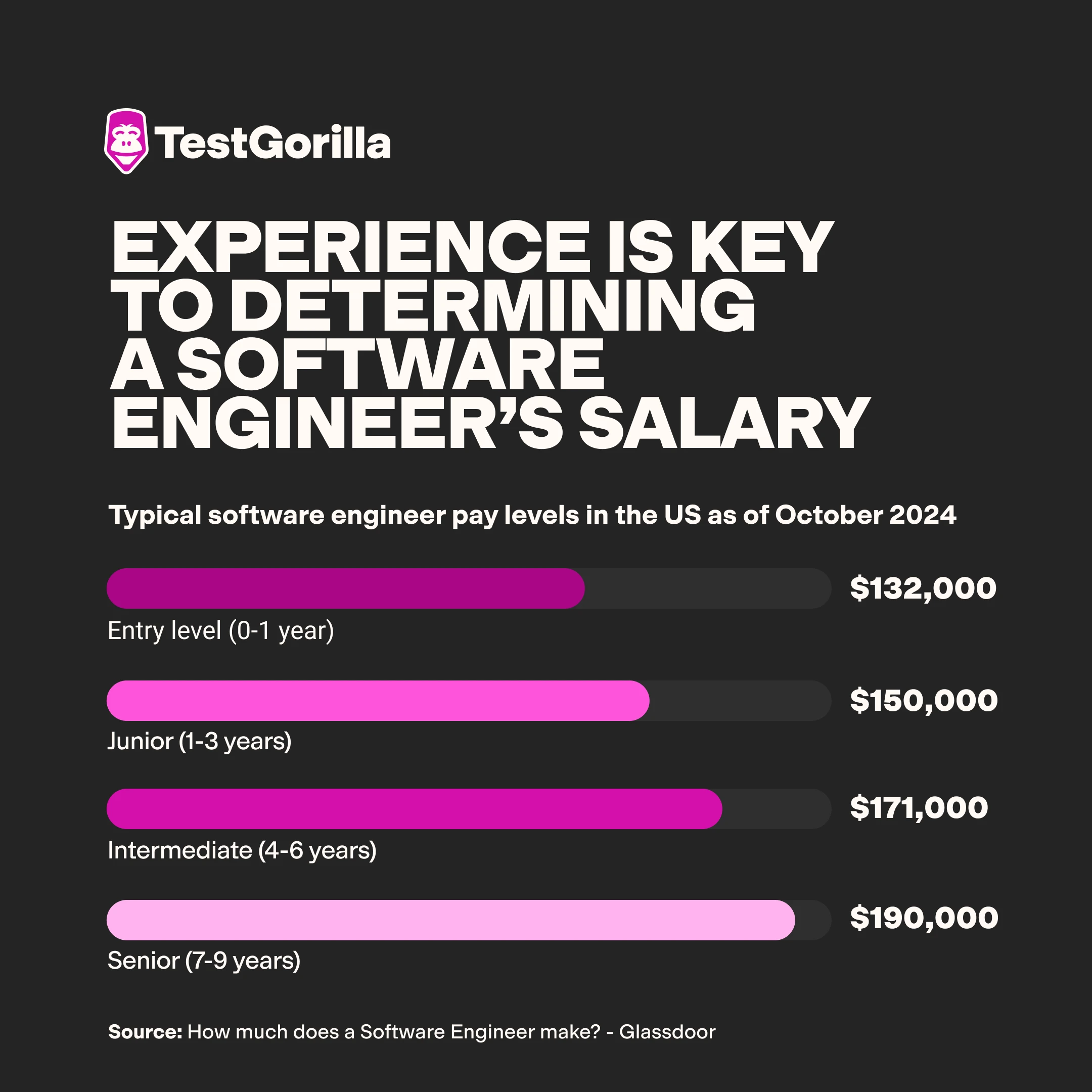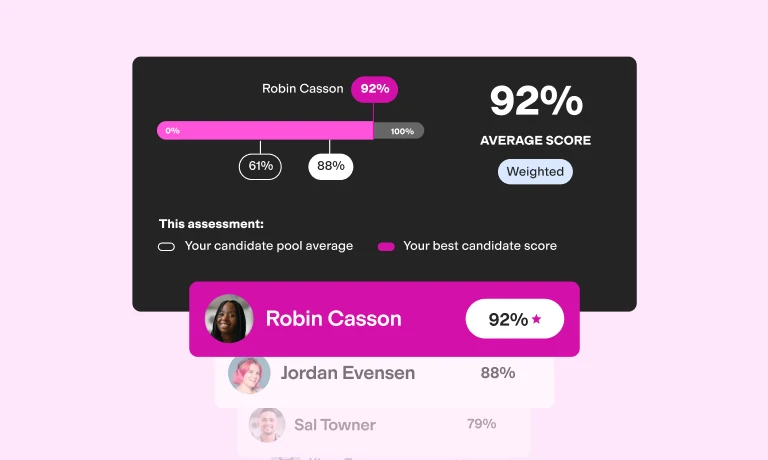Software is typically at the core of what makes all modern businesses run efficiently - but finding a talented software engineer with skills that match your needs is challenging in this competitive market. The last thing you want is to drive a great software engineer to work for the competition because you offered them sub-par pay.
We’ve made this comprehensive guide to ensure you fully understand the salaries you should expect to pay for the software engineer without exceeding your budget.
How we researched this topic
To ensure the latest and most accurate statistics, we’ve combined the latest data from highly reputable sources such as Glassdoor, PayScale, and CareerExplorer. These sources have millions of confidential data points across various industries, companies, and job titles.
By using the most up-to-date and reputable sources, we can provide the most accurate analysis of current salaries for software engineers across several variables. This gives you the best information when deciding how much to pay your software engineers.
Key takeaways
The median annual salary for software engineers is $123,000, with top earners making around $240,000. Salaries vary by location, industry, and experience, with California offering the highest mean wage of $156,000.
Key factors influencing pay for software engineers include geographic location, industry-specific demands, experience level, and specific skills like AI or blockchain expertise, which can command salaries of $150k-$202k.
While 73% of software engineers have a bachelor’s degree, certifications like AWS Certified Developer or Google Developers Certification can significantly increase salaries.
Software engineers value benefits like stock options, professional development opportunities, flexible work arrangements, and performance bonuses.
The best insights on HR and recruitment, delivered to your inbox.
Biweekly updates. No spam. Unsubscribe any time.
National salary statistics for software engineers
Pay metric | Annual salary (USD) |
Mean | ~$105,000 |
Median | $123,000 |
Bottom 10% earners | $70,000 |
Top 10% earners | $240,000 |
Median salary vs. mean salary
The median salary is the number in the middle of the dataset. This means that if you line up everyone in order of how much money they make, the median value would be in the middle, with 50% earning more and 50% earning less.
For example, if you have a dataset of five salaries and arrange them in order – $50k, $60k, $70k, $80k, $200k – the median salary is $70k because it’s in the middle, with two salaries higher and two salaries lower.
The mean salary is considered the average. This number is calculated by adding up all the salaries and dividing by the total number of salaries. The mean often skews higher due to very high or very low salaries (known as outliers), which is why the median better indicates the expected salary.
Factors influencing salaries
Here are some factors that’ll influence how much you should pay your software engineers:
Geographic location
Industry
Experience level
Educational qualifications
Level of responsibilities and skills required
Let’s break down some data related to each of these below.
Geographic pay variations
Hiring remote software engineers is becoming increasingly common, but location still matters when it comes to salaries.
If you’re hiring in a bustling city like New York or a tech hotspot like Silicon Valley, expect to pay more. High living costs and fierce competition drive up wages.
On the flip side, hiring in smaller towns or rural areas often means lower salary expectations.
Here are the top five highest-paying states for software engineers:
State | Median annual salary | Salary range (approx.) |
California | $156,000 | $117,000-$208,000 |
Washington | $145,000 | $108,000-$193,000 |
Maryland | $120,000 | $89,000-$160,000 |
New York | $138,000 | $103,000-$184,000 |
Massachusetts | $135,000 | $100,000-$180,000 |
Industry-specific pay data
The industry you’re in also affects the salary you can expect to pay a software engineer. Higher-paying sectors are generally more profitable and offer higher pay to compete for the best talent.
High-paying industries for software engineers
The top-paying industries for software engineers in the US include manufacturing, finance, and management. Due to their profitability, these sectors often invest heavily in securing the best hires.
Tech-specific industries also stand out for high pay, not just because of profitability but because software development, publishing, and management are central to their mission. To attract the best talent, tech companies often offer top-tier salaries.
Lower-paying industries
On the lower end are industries such as education, non-profits, and government bodies, which generally offer lower salaries due to limited resources.
Pay by experience
A software engineer’s experience plays a key role in determining their salary. Here are the typical pay levels in the US as of October 2024:
Entry level (0-1 year): $132,000
Junior (1-3 years): $150,000
Intermediate (4-6 years): $171,000
Senior (7-9 years): $190,000
Education and certificates
An estimated 73% of software engineers have bachelor’s degrees, while 20% have a master’s degree. Computer science is the most popular major for software engineers, representing 38%.
These degrees can boost earning potential, but they aren’t essential. Several online courses can show a candidate’s software engineering proficiency – and help them earn more. These include:
Amazon Junior Developer Professional Certificate: This course teaches beginners in-demand skills such as software development and generative AI.
AWS Certified Developer - Associate: Amazon offers this course to validate skills in software development, testing, deployment, and debugging for AWS Cloud-based applications.
Google Developers Certification: Google offers a range of certificates to demonstrate a candidate’s proficiency in a range of Google Cloud services.
Microsoft Certified Azure Developer Associate: This certificate shows a candidate’s ability to build, manage, and scale software on Microsoft Azure cloud services.
Oracle Certified Professional, Java EE 7 Application Developer: This certificate from Oracle shows proficiency at the intermediate and advanced levels for Java front-end and back-end application developers.
Responsibilities and skills required
The final factor impacting the salary for a software engineer is the skills needed for the role. Software engineering is a broad term that covers multiple programming languages, a wide range of projects, and different development environments.
For example, the average cloud software engineer in the US earns $114,500 annually, while an AI software engineer can earn upwards of $200,000 per year.
Salaries can rise further for individuals proficient in multiple areas of software engineering. For instance, full-stack engineers – skilled in managing front-end interfaces and back-end systems – typically command higher salaries than those who focus only on the front or back end.
Full-stack engineers often take on a leadership role for larger companies by managing a multi-skilled team. This added responsibility also demands a higher salary, as the engineer is responsible for using their vast skills and experience to deliver the project successfully.
Benefits beyond salary
Like all valued employees, software engineers expect certain employment benefits outside their salary. Due to the nature of the tech industry, there are some additional perks you may consider offering the best talent, too.
1. Health and wellness
In addition to the typical health and life insurance companies usually offer, software engineers – who typically sit at their desks all day to work – may appreciate free wellness perks such as gym memberships and mental health support.
2. Growth opportunities
The best software engineers are motivated to stay ahead of the game and improve their skills. Growth opportunities can be offered through conference participation and access to online training and certifications. Online courses for software engineers are commonly provided through major tech companies like Google, Amazon, and Microsoft, or specific skills can be honed through online learning platforms like Udemy or Skillshare.
3. Performance bonuses
Performance bonuses for high-value employees who help drive company success are a direct way of showing them that their contribution is valued. For software engineers, bonuses are often linked to project milestones and passing code quality reviews. This helps to motivate and retain talent, keeping your operations running as smoothly as possible.
4. Retirement and stock options
Offering a retirement plan, such as a 401k or something similar, gives your team a sense of security that allows them to focus on their work without outside distractions. Offering software engineers stock options is a great way to invest them fully in the company's success.
Of course, whether you offer this perk will depend entirely on your business and the value the individual can bring. This is a great option for startups that need to hire software engineers but can’t afford a competitive salary.
5. Flexible working and paid leave
Remote work has become commonplace across many industries, particularly in tech. Because software engineers often work independently and frequently need long periods of individual-focused work, they’re more likely to want to work from home. Businesses often pay for new devices and software to enable engineers to perform at full speed in their home offices.
They’re also more inclined to work overtime when a project is busy and will expect paid leave in return for this commitment.
Level up your hiring process with talent assessments
Location, experience, specialization, and education impact software engineers' salaries. Considering this information is crucial for knowing the salary range your candidate will be expecting.
At the end of the day, you need to know your new hire has the skills to do the job. This is where TestGorilla’s skills tests come in.
For instance, you can give a prospective hire the Software Engineer test to find out if they’re worth your offer for the role. Combine this with up to four other tests from our library to make a custom assessment you can use to screen all your software engineering applicants.
To learn more, sign up for a free account or book a demo.
FAQs
What is the salary of a 4-year software engineer?
A software engineer with four years of experience can expect to earn between $100k and $140k. The exact amount will depend on their specific skills, industry, and location. For example, an AI or cloud-computing specialist working in the finance industry in New York will likely earn more than a general programmer working in the education sector in the Midwest.
Can a software engineer become a CEO?
History has shown that software engineers can make outstanding CEOs. Prominent examples are Sundar Pichai at Google, Satya Nadella at Microsoft, and Elon Musk at PayPal, Tesla, and SpaceX. Successful software engineers possess many attributes needed in a great CEO, such as analytical thinking, problem-solving skills, and adaptability to change.
Which software engineer has the highest salary?
Software Engineer is a broad term, and the pay range for software engineers varies widely depending on their specialization. Experienced engineers proficient in fields like artificial intelligence, blockchain, and machine learning can command salaries of over $200k annually. Engineers working in tech startups can also receive company stock worth millions if the business succeeds.
To effectively assess a candidate's grasp of the foundational principles behind these advanced fields, consider our dedicated Algorithms for Software Engineering test.
You've scrolled this far
Why not try TestGorilla for free, and see what happens when you put skills first.




















